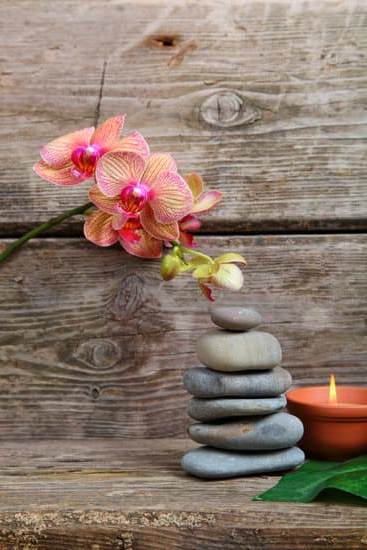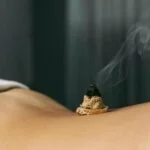Is aromatherapy safe for birds? In recent years, the practice of using essential oils to promote physical and emotional well-being has gained popularity among pet owners. Aromatherapy involves the use of plant-derived oils to enhance the health and mood of individuals, including our feathered friends. However, when it comes to birds, there are unique considerations that need to be taken into account to ensure their safety and well-being.
Essential oils are highly concentrated extracts from plants that are known for their therapeutic properties. They can be used in a variety of ways, such as through diffusion, topical application, or ingestion. While aromatherapy is generally considered safe for many animals and humans, birds have a particularly sensitive respiratory system that sets them apart. Due to their unique physiology, certain essential oils that are harmless to humans can actually be harmful or even toxic to birds if not used carefully.
Understanding the intricacies of avian respiratory systems is crucial when exploring the use of aromatherapy for birds. Birds have a more efficient respiratory system compared to mammals, with air flowing in only one direction through their lungs.
This means that they are more sensitive to airborne toxins and irritants, making them vulnerable to potential risks associated with exposure to certain essential oils. It is important for bird owners considering aromatherapy to educate themselves on safe practices and identify which essential oils are suitable for their feathered companions’ well-being.
The Basics of Aromatherapy
Aromatherapy is a holistic healing treatment that uses natural plant extracts, known as essential oils, to promote physical and psychological well-being. These essential oils are derived from various parts of plants through processes like distillation or cold pressing. Each essential oil carries its own unique set of properties and benefits, which can range from reducing stress and anxiety to boosting immunity and improving sleep quality.
With the increasing interest in natural remedies for pets, aromatherapy is also gaining popularity among bird owners. However, it is crucial to understand the basics of aromatherapy before introducing it to our feathered friends.
When using essential oils in aromatherapy for birds, it is important to ensure that the products are 100% pure and free of any artificial additives or fragrances that could be harmful to avian species. Birds have a highly sensitive respiratory system, with air sacs connected directly to their lungs, allowing oxygen exchange during both inhalation and exhalation.
This unique anatomy makes them more vulnerable to airborne toxins and irritants compared to humans. As such, the use of high-quality essential oils specifically formulated for birds is essential in ensuring their safety and well-being.
In addition to being mindful of the purity of essential oils used in aromatherapy for birds, it is equally important to consider the method of application and dosage. The preferred methods for introducing aromatherapy to birds include diffusing oils in a well-ventilated area away from the birds’ living space or diluting oils with a carrier oil for topical application on their feathers under the guidance of an avian veterinarian.
Monitoring the dosage carefully according to the size and species of the bird is crucial in preventing any potential adverse reactions. By understanding these basic principles of aromatherapy, bird owners can safely enjoy the benefits of this natural healing practice while ensuring the well-being of their feathered companions.
Understanding Birds and Their Sensitivity
Birds have delicate respiratory systems that differ significantly from those of humans, making them particularly sensitive to environmental factors such as airborne pollutants and strong scents. This raises concerns among bird owners about the safety of using aromatherapy around their feathered companions. The question “is aromatherapy safe for birds” is a valid one, considering the potential risks involved when introducing essential oils into the air that birds breathe.
The avian respiratory system is incredibly efficient but also fragile compared to mammals. Birds have air sacs that allow for a unidirectional airflow through their lungs, enabling them to extract oxygen more effectively during flight.
However, this unique system also means that birds are highly susceptible to airborne toxins and irritants, including some essential oils commonly used in aromatherapy. Certain volatile compounds present in these oils can be harmful or even toxic to birds when inhaled, ingested, or absorbed through their skin.
Given the sensitivity of birds’ respiratory systems, it is crucial for bird owners to exercise caution when considering aromatherapy in their homes. While some essential oils may offer benefits when used appropriately, others can pose significant risks to avian health. Understanding which essential oils are safe for birds and how to properly administer them is key to ensuring that aromatherapy has a positive rather than negative impact on our feathered friends.
| Safe Essential Oils for Birds | Description |
|---|---|
| Lavender | Known for its calming properties and generally considered safe for birds when properly diluted |
| Chamomile | Has soothing effects and can help alleviate stress in birds; best used sparingly and with care |
| Sweet Orange | A mild citrus oil that is often well-tolerated by birds when diffused in small amounts |
Potential Risks of Aromatherapy for Birds
Chemical Sensitivity in Birds
Birds have highly sensitive respiratory systems, with air sacs and a unique anatomy that allows for efficient gas exchange. This sensitivity, while advantageous in their natural habitats, can pose a risk when exposed to certain chemicals and substances. Essential oils, commonly used in aromatherapy, contain volatile compounds that can be harmful to birds if inhaled or ingested. The airborne particles from diffusing essential oils may irritate the delicate respiratory passages of birds and lead to respiratory distress.
Toxicity of Specific Essential Oils
It is crucial for bird owners to be aware of the potential dangers associated with specific essential oils when used around avian species. Certain essential oils such as tea tree oil, eucalyptus oil, and pine oil contain compounds that are toxic to birds.
When birds are exposed to these oils through direct contact or inhalation, it can result in symptoms ranging from mild irritation to serious health issues like organ damage or even death. Therefore, it is essential to exercise caution and avoid using these oils in proximity to pet birds.
Cautions for Bird Owners
To ensure the safety and well-being of pet birds, bird owners must take precautions when incorporating aromatherapy into their homes. It is advisable to research extensively and consult with avian experts before introducing any new scents or essential oils into the environment. Additionally, always monitor bird behavior closely after the introduction of aromatherapy products.
Signs of distress such as labored breathing, sneezing, or lethargy should prompt immediate removal of the offending scent and seeking veterinary assistance if necessary. Remember that ensuring a safe living space for your feathered companions is paramount when considering the use of aromatherapy around birds.
Safe Essential Oils for Birds
Aromatherapy can be a beneficial and soothing practice for many pet owners, including those with avian companions. However, when it comes to using essential oils around birds, caution must be exercised to ensure their safety and well-being. Birds have unique respiratory systems that make them especially sensitive to airborne substances, including essential oils. Therefore, it is crucial to choose oils that are safe for birds and avoid those that can pose potential risks.
Listed below are some essential oils that are generally considered safe for birds:
- Lavender: Known for its calming properties, lavender can help reduce stress and anxiety in birds.
- Chamomile: Another calming oil, chamomile can promote relaxation and may aid in sleep quality for birds.
- Cedarwood: With its earthy scent, cedarwood is often used to repel insects and can also have a grounding effect on birds.
It is important to note that each bird’s sensitivity levels can vary, so it is recommended to start with small amounts of diluted oils and observe your bird’s reactions closely. Additionally, always consult with an avian veterinarian before introducing any new essential oils to your feathered friend’s environment. By being cautious and informed, you can safely incorporate aromatherapy into your bird’s routine for added comfort and well-being.
Proper Usage and Dosage
Aromatherapy is a practice that involves the use of essential oils to promote physical and emotional well-being in humans and animals. While it can have many benefits, it is essential to approach aromatherapy with caution when it comes to birds. The respiratory systems of birds are highly sensitive and unique, making them more susceptible to airborne toxins and irritants. This sensitivity raises the crucial question: is aromatherapy safe for birds?
When considering introducing aromatherapy to your avian companion, it is vital to understand that not all essential oils are safe for birds. Some oils contain compounds that can be toxic or irritating to birds, leading to respiratory issues or other health problems. To ensure the safety of your feathered friend, here are some guidelines on how to safely administer aromatherapy to birds:
- Consult with an avian veterinarian before using any essential oils on your bird.
- Avoid diffusing essential oils in the same room where your bird resides, as they can be sensitive to inhaling concentrated oil particles.
- Choose high-quality, pure essential oils from reputable sources.
Proper dilution is key when using essential oils on birds. Essential oils should always be diluted with a carrier oil (such as coconut or almond oil) before applying them topically or allowing birds to inhale them. To create a safe blend for your bird, follow these dosage guidelines:
- For topical application: Dilute one drop of essential oil in one teaspoon of carrier oil.
- For diffusion: Use a minimal amount of diluted oil and monitor your bird’s reaction closely.
- Avoid direct contact with eyes, nostrils, mucous membranes, and sensitive areas when applying essential oils.
By following these guidelines and being mindful of your bird’s well-being, you can safely introduce aromatherapy to your feathered companion and potentially enhance their quality of life. As always, if you notice any signs of distress or discomfort in your bird after using aromatherapy, discontinue use immediately and consult with an avian expert for guidance on alternative methods for supporting your bird’s health and happiness.
Monitoring Bird Behavior
When utilizing aromatherapy for birds, it is crucial to pay close attention to their behavior and well-being. Birds, with their highly sensitive respiratory systems, can react differently to essential oils compared to other pets like dogs or cats. It is essential to monitor your feathered friend’s reactions closely to ensure that they are not experiencing any distress or discomfort from the aromatherapy.
Visual Cues
One of the first signs of distress in birds exposed to aromatherapy is changes in their body language and behavior. Look for indications such as fluffing up feathers, rapid breathing, trembling, or unusual vocalizations. These visual cues can signal that your bird is not responding well to the scent of the essential oils and may be experiencing some level of discomfort.
Respiratory Issues
Birds have very delicate respiratory systems, making them particularly vulnerable to airborne irritants like strong scents from essential oils. If you notice that your bird is wheezing, coughing, sneezing excessively, or showing signs of labored breathing after being exposed to aromatherapy, it is a clear indication that the particular oil you are using may not be suitable for them. Immediate removal from the environment with aromatherapy and consulting with an avian veterinarian are necessary steps to take.
Behavioral Changes
Changes in your bird’s usual behavior can also indicate that they are not comfortable with the presence of essential oils. Aggression, restlessness, decreased appetite, lethargy, or fearfulness are all behavioral responses that suggest your bird may be experiencing distress due to aromatherapy exposure. It is crucial to observe these changes and assess whether discontinuing the use of essential oils is necessary for the well-being of your avian companion.
By being vigilant and observant of your bird’s behavior when introducing aromatherapy into their environment, you can ensure their safety and well-being. Remember that what is aromatherapy safe for birds varies depending on the individual avian species and its sensitivities. Always prioritize your bird’s health by closely monitoring their reactions and seeking guidance from avian experts if needed.
Consultation With Avian Experts
Bird owners who are considering using aromatherapy for their feathered companions must prioritize the safety and well-being of their avian pets. One key question that arises is whether aromatherapy is safe for birds. While some essential oils can offer potential benefits to birds, caution is necessary due to the unique respiratory systems and sensitivities of avian species. Consulting with avian experts, such as veterinarians specializing in bird care, is crucial before incorporating aromatherapy into a bird’s environment.
Avian veterinarians have specialized knowledge about the physiology, behavior, and healthcare needs of birds. When it comes to aromatherapy, these professionals can provide valuable insights into which essential oils are safe to use around birds and those that should be avoided.
Due to the potent nature of essential oils, incorrect usage or exposure to certain oils can pose serious health risks to birds. Avian veterinarians can offer personalized recommendations based on the specific species of bird being cared for and any existing health conditions they may have.
Additionally, consulting with avian experts can help bird owners navigate proper usage and dosage when introducing aromatherapy to their avian companions. Avian veterinarians can advise on how to administer essential oils safely, whether through diffusion, topical application, or other methods.
Monitoring bird behavior and responses to aromatherapy is also vital, and avian experts can provide guidance on what signs of distress or discomfort to watch for in birds exposed to aromatic substances. By seeking consultation with avian veterinarians before implementing aromatherapy practices with birds, pet owners can ensure a holistic approach to promoting their feathered friends’ well-being.
| Essential Oils Safe for Birds | Description |
|---|---|
| Lavender | Calming and soothing scent that may help alleviate stress in birds |
| Chamomile | Gentle and relaxing oil that can promote feelings of comfort in birds |
| Sweet Orange | Refreshing aroma that may uplift mood without causing harm to most avian species |
Conclusion
In conclusion, the question of whether aromatherapy is safe for birds is a complex one that requires careful consideration and understanding of avian physiology. While aromatherapy can offer benefits to pets and their owners, it is crucial to acknowledge the unique respiratory systems of birds and their heightened sensitivity to certain essential oils. As we have explored, exposure to inappropriate oils can pose serious risks to the health and well-being of our feathered companions.
When considering using aromatherapy for birds, it is imperative to prioritize their safety above all else. By selecting essential oils that are known to be safe for avian species, such as lavender or chamomile, pet owners can minimize the likelihood of adverse reactions in their feathered friends. Furthermore, following proper usage guidelines and consulting with avian experts before implementing aromatherapy practices is strongly recommended.
Ultimately, while aromatherapy can be a valuable tool in promoting relaxation and wellness for pets like birds, responsible and informed use is key. By educating ourselves on the potential risks and safe practices associated with aromatherapy for birds, we can ensure that our avian companions reap the benefits of this alternative therapy without compromising their health. It is essential to approach aromatherapy for birds with caution, mindfulness, and a commitment to safeguarding their well-being above all else.
Frequently Asked Questions
Are Aroma Diffusers Safe for Birds?
Aroma diffusers can be potentially harmful to birds due to their sensitive respiratory systems. Essential oils released by diffusers can irritate their lungs and airways, leading to health issues. It’s best to avoid using them around birds.
What Fragrances Are Safe for Birds?
When it comes to fragrances safe for birds, it’s important to stick to natural scents like lavender, chamomile, or eucalyptus that are known to have calming effects. Artificial fragrances or strong scents should be avoided as they can be harmful to birds.
Does Peppermint Oil Bother Birds?
Peppermint oil can bother birds due to its strong scent and potentially irritating properties. The strong aroma of peppermint oil may overwhelm their sensitive respiratory systems and cause discomfort. It’s advisable not to use this oil around birds.

Are you looking for a natural way to improve your health and wellbeing?
If so, aromatherapy may be the answer for you.





